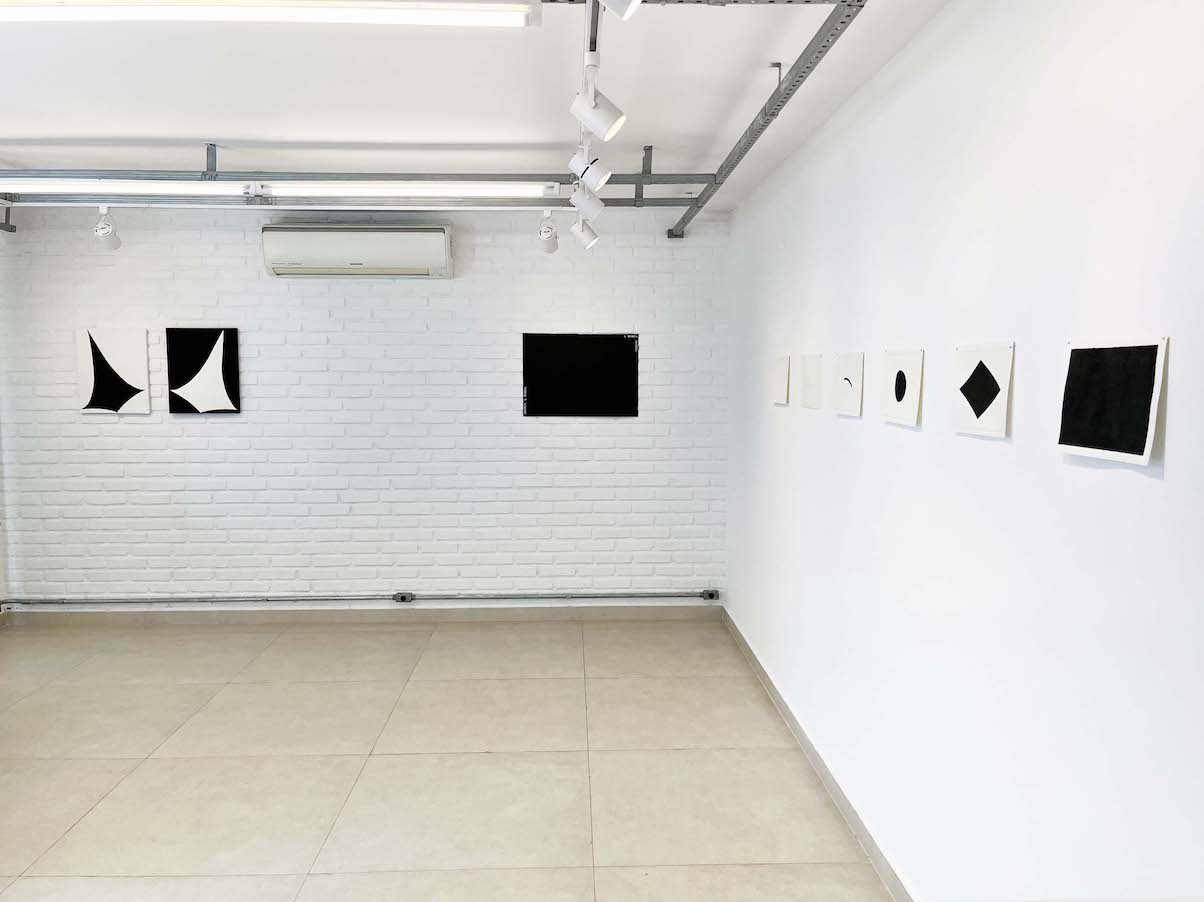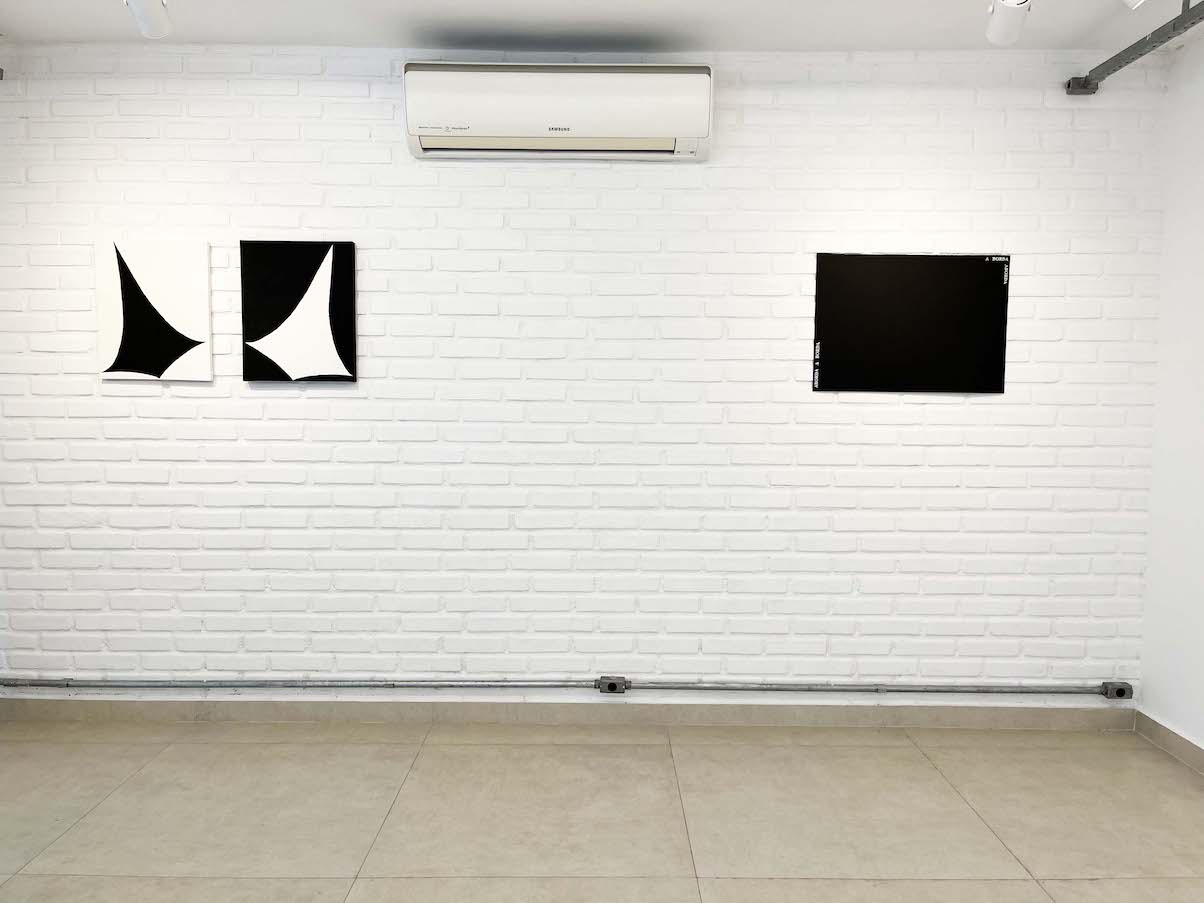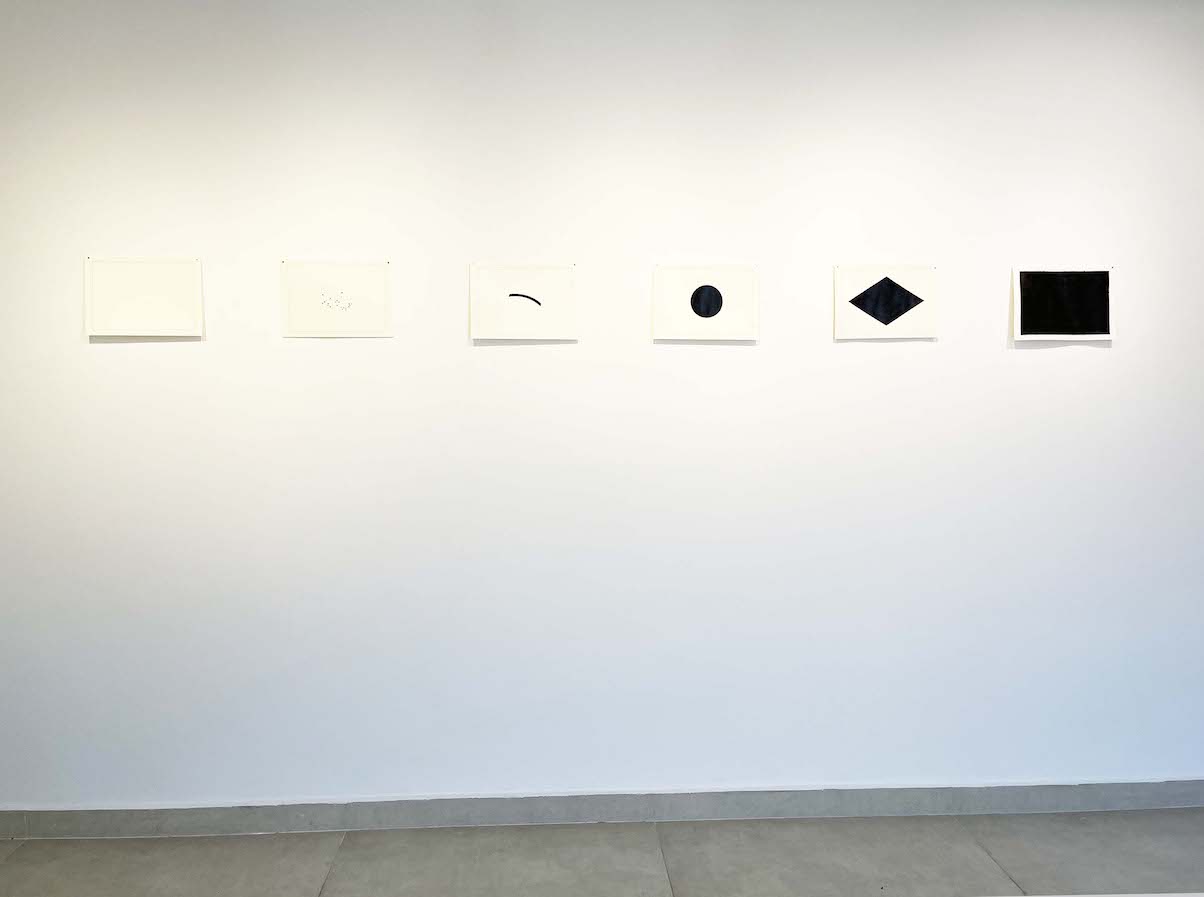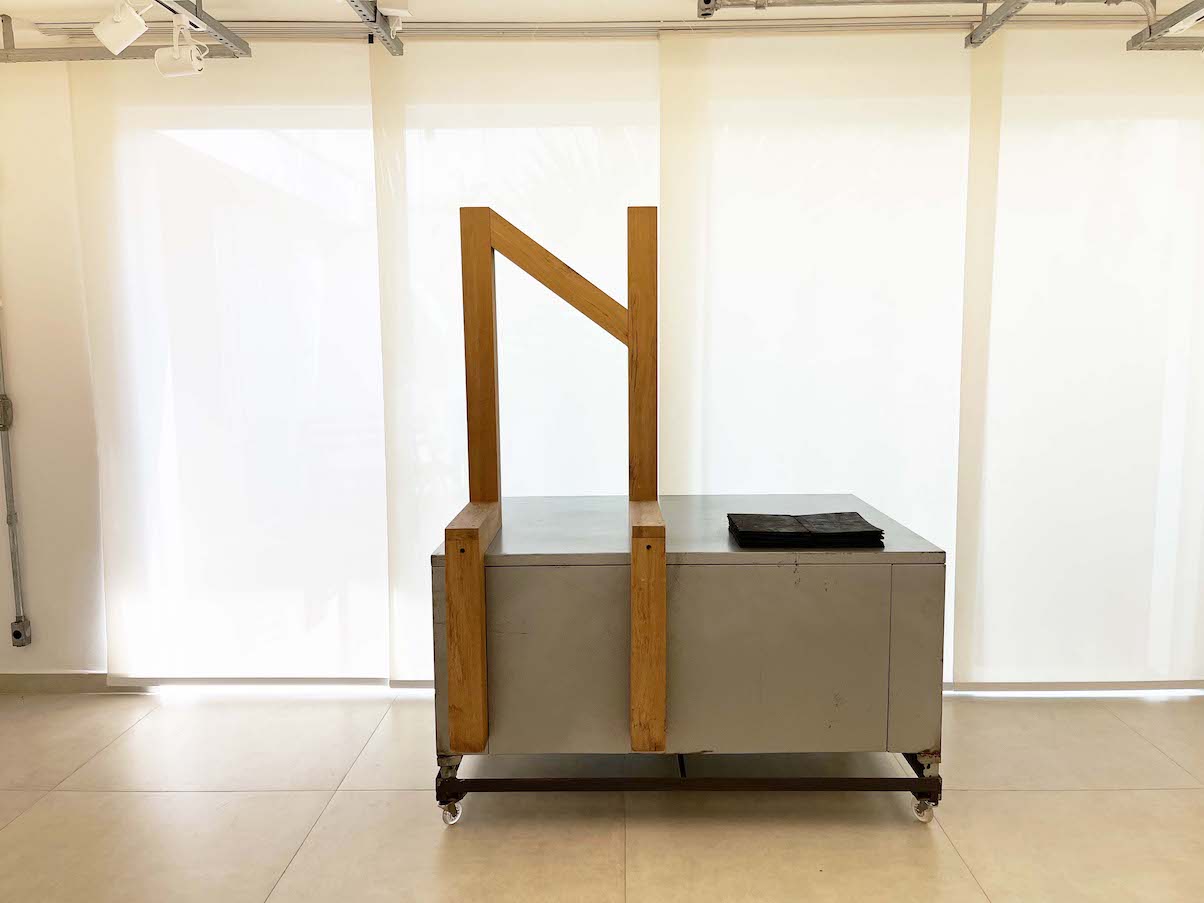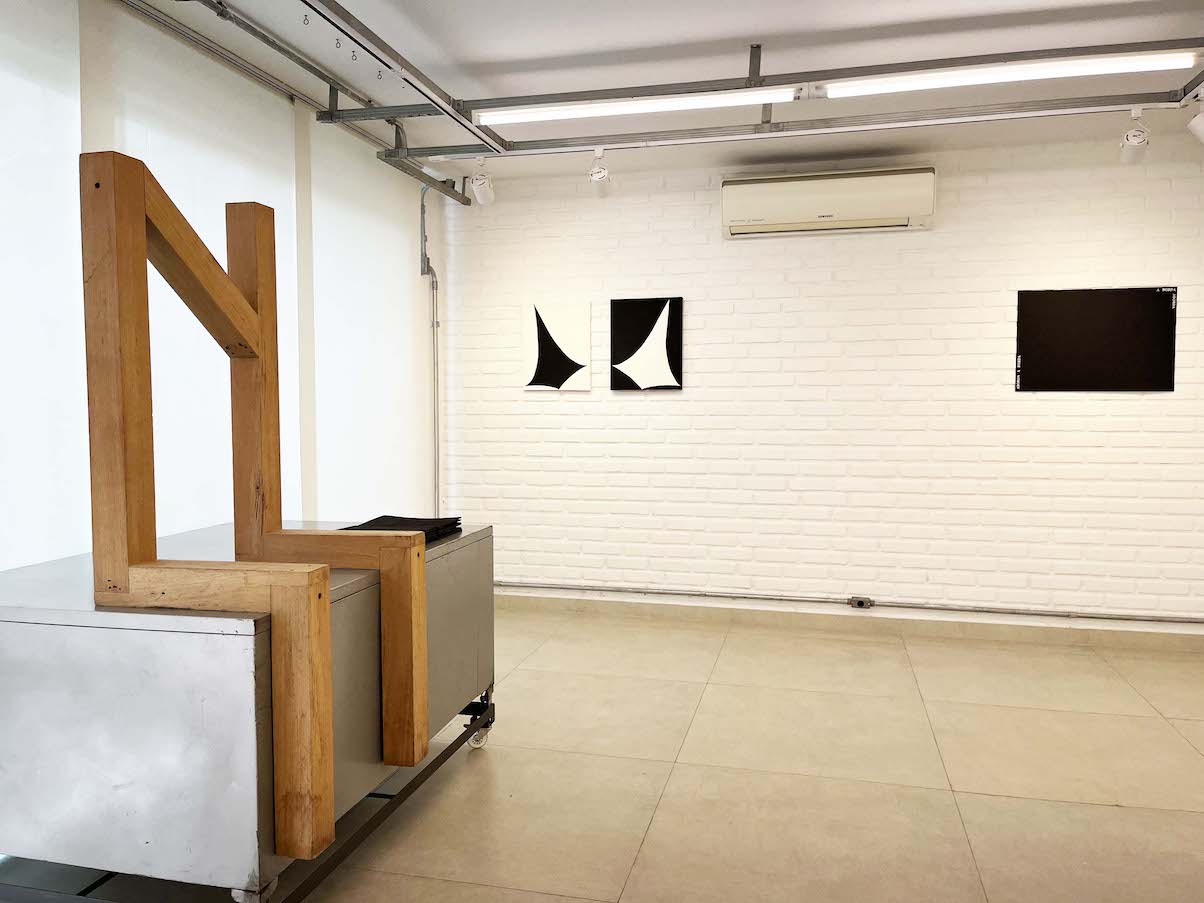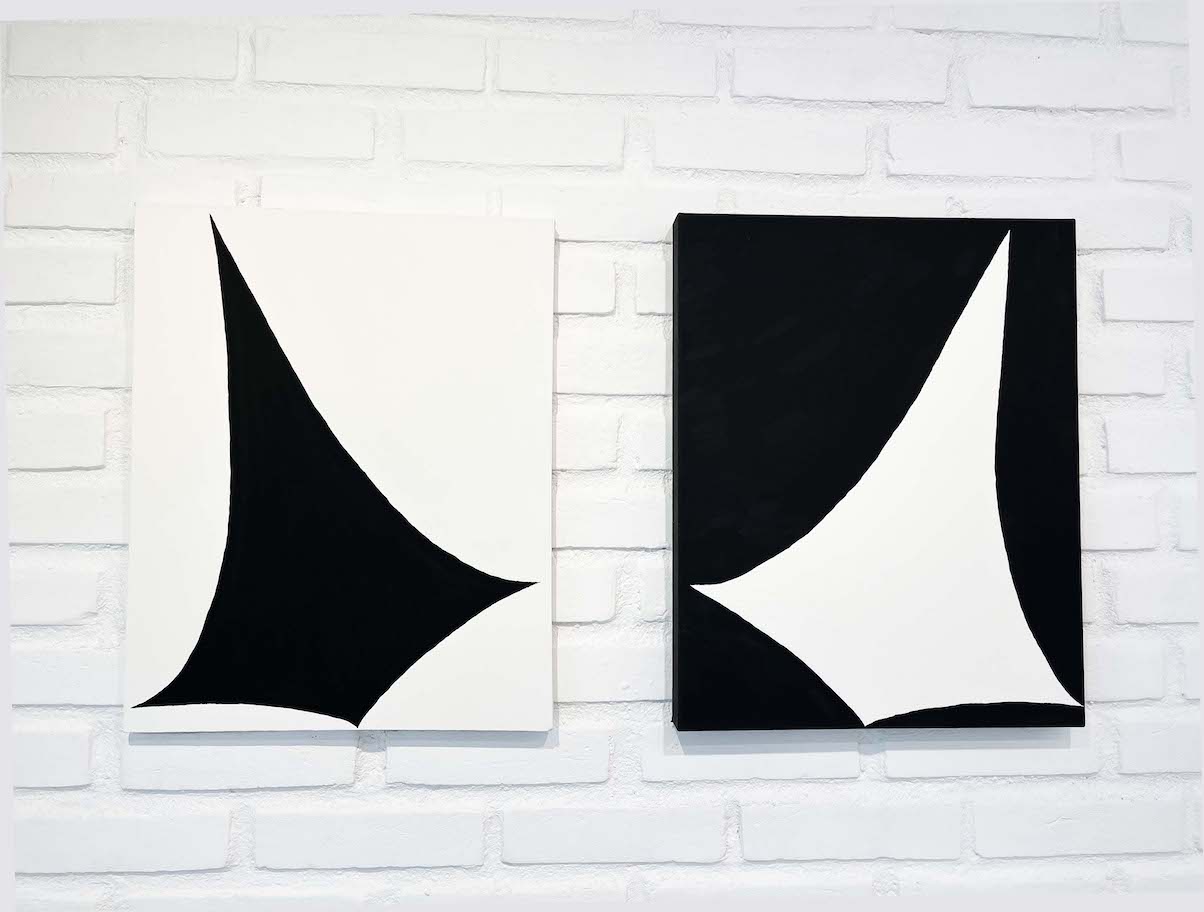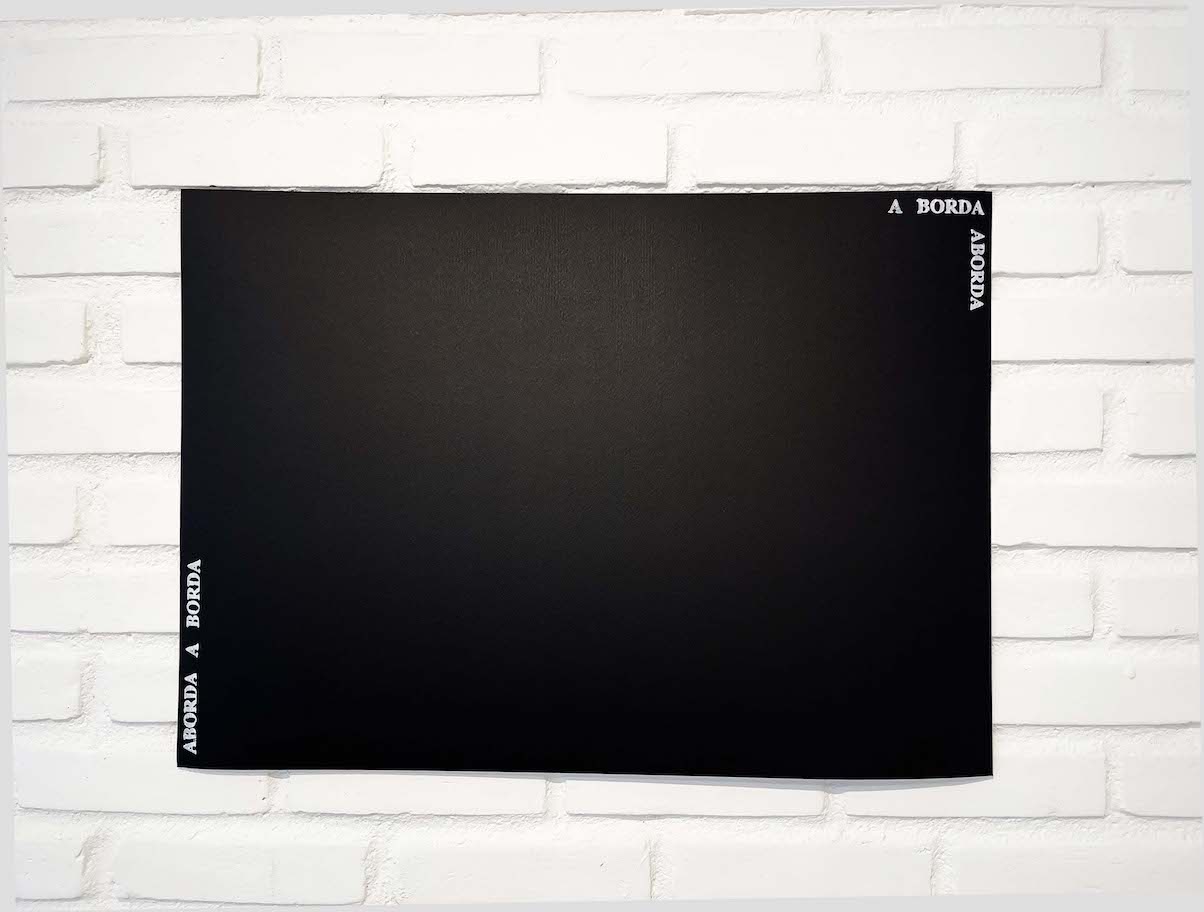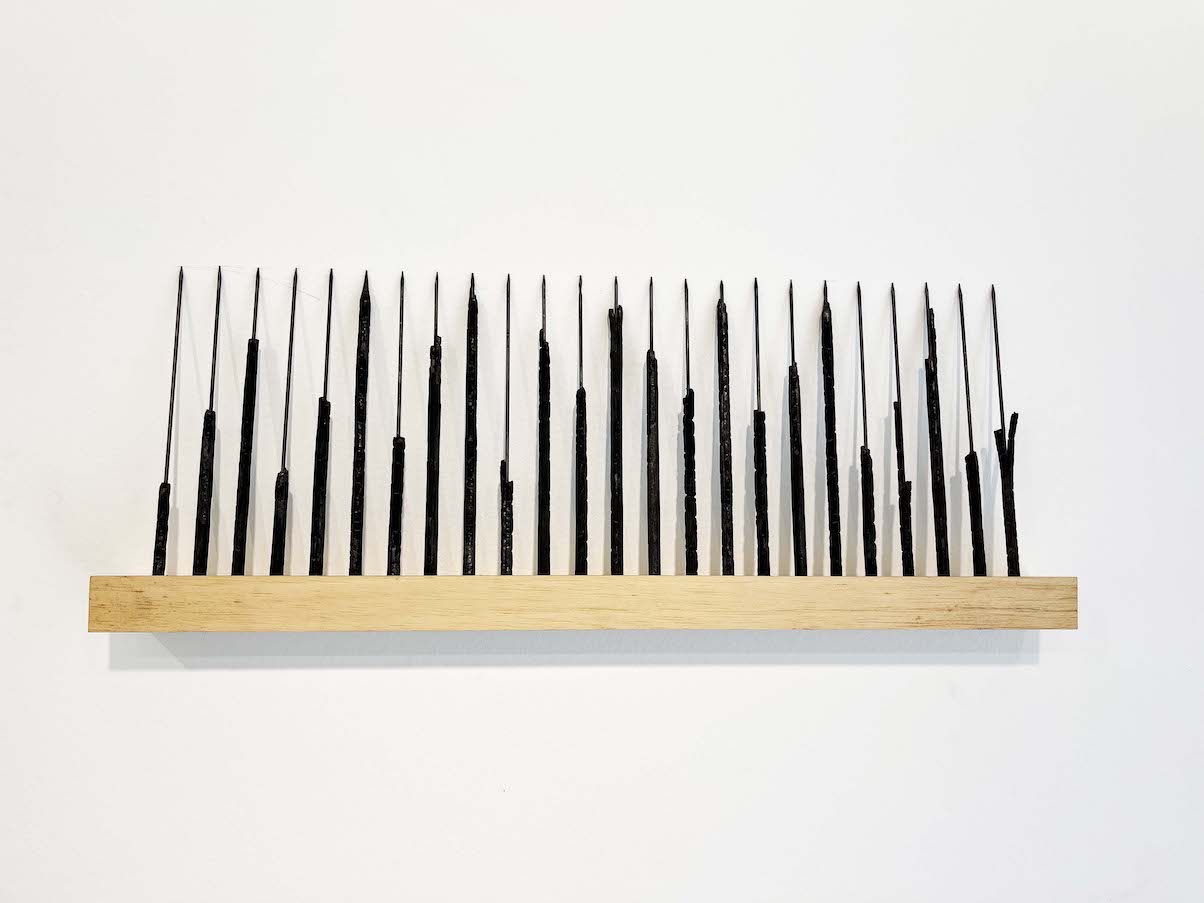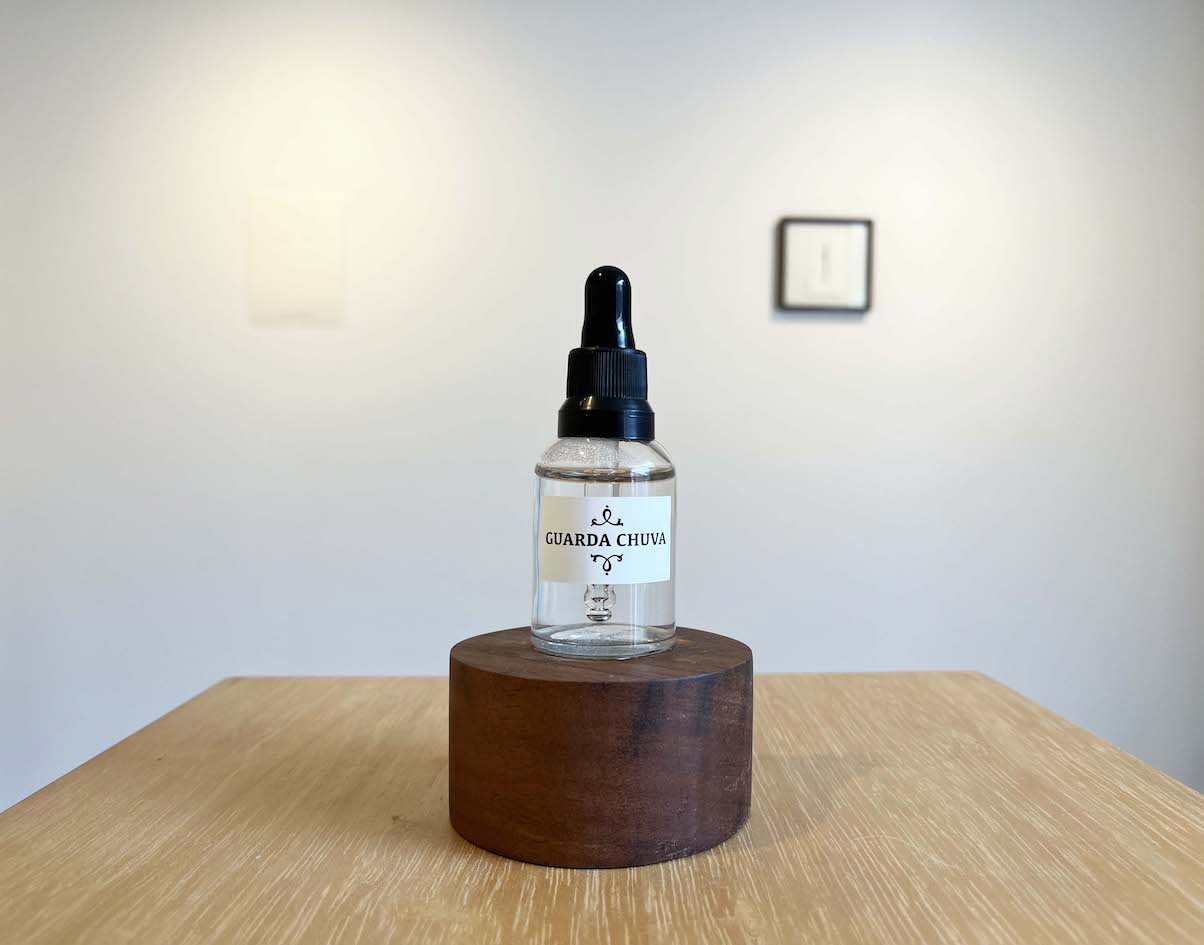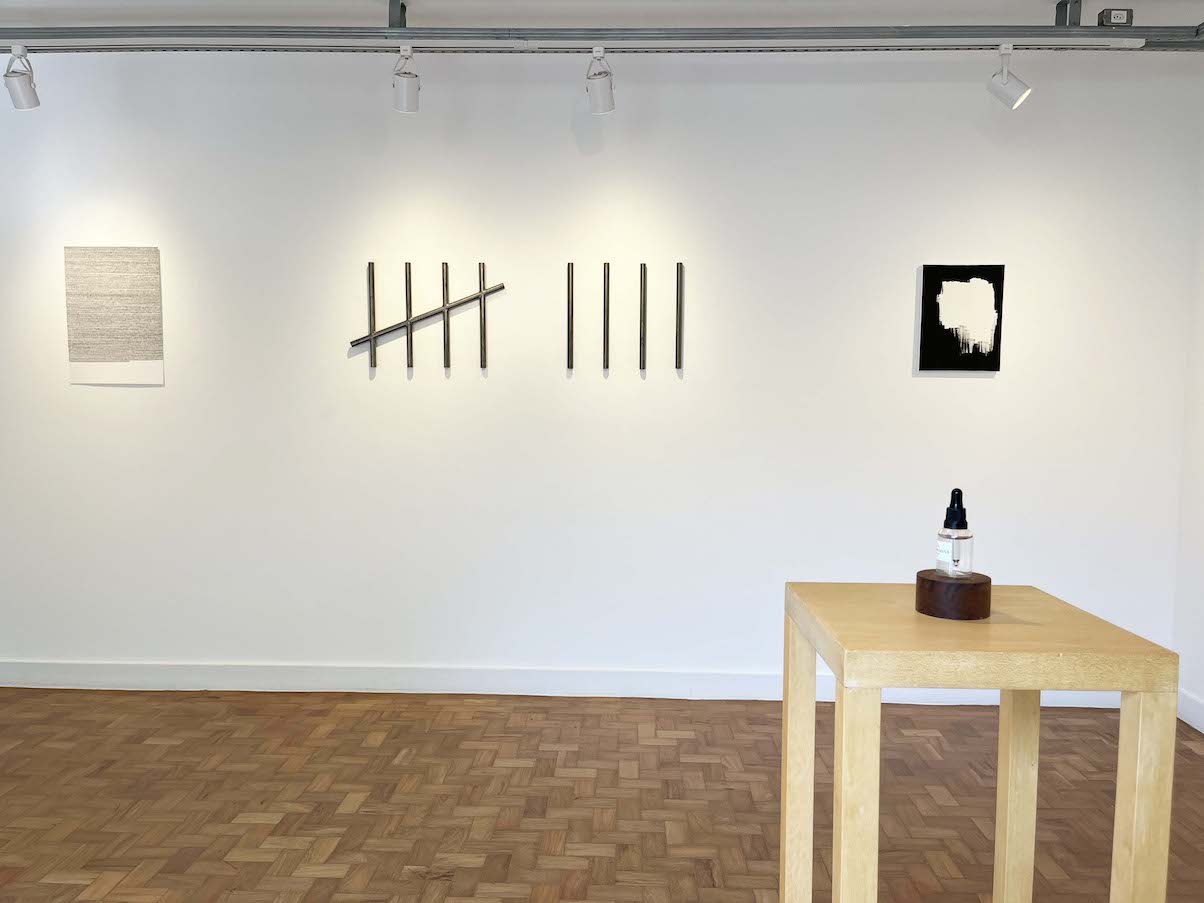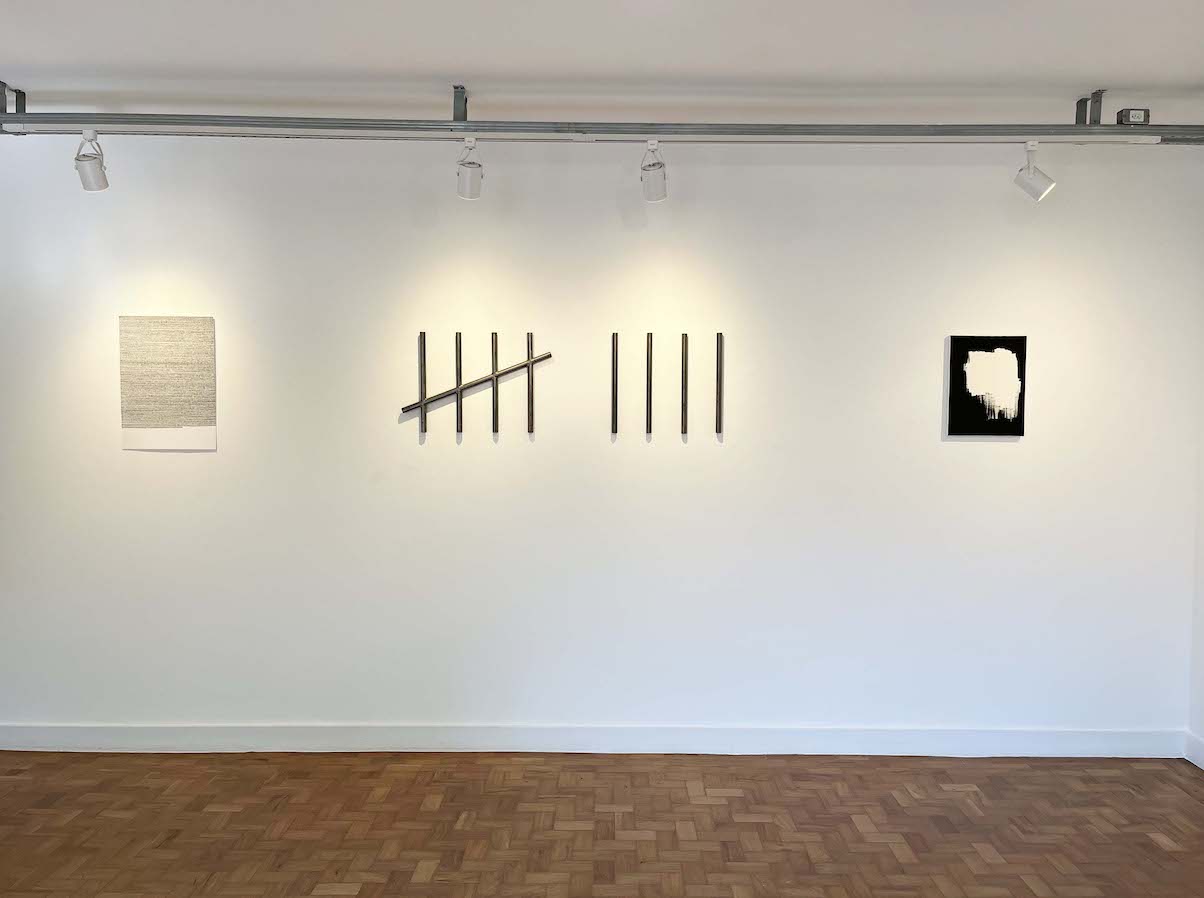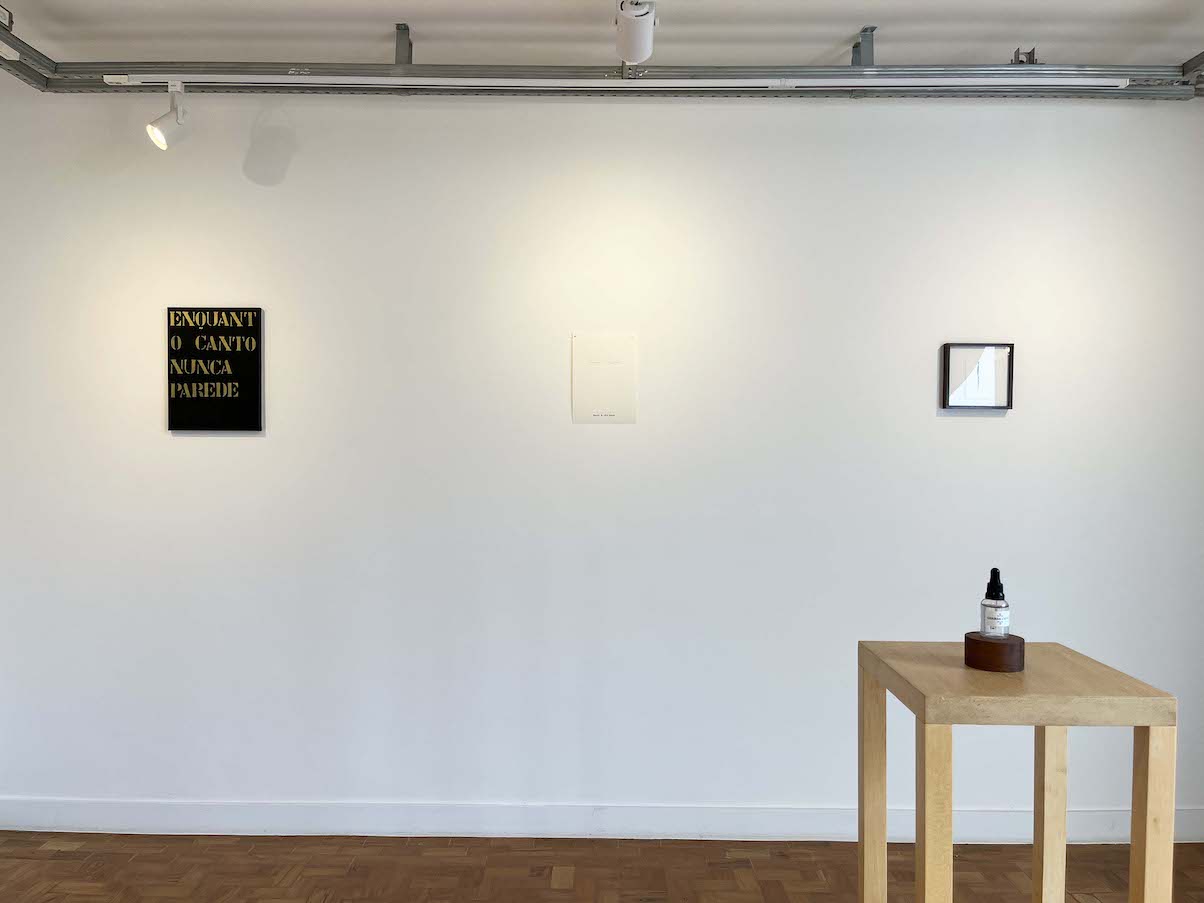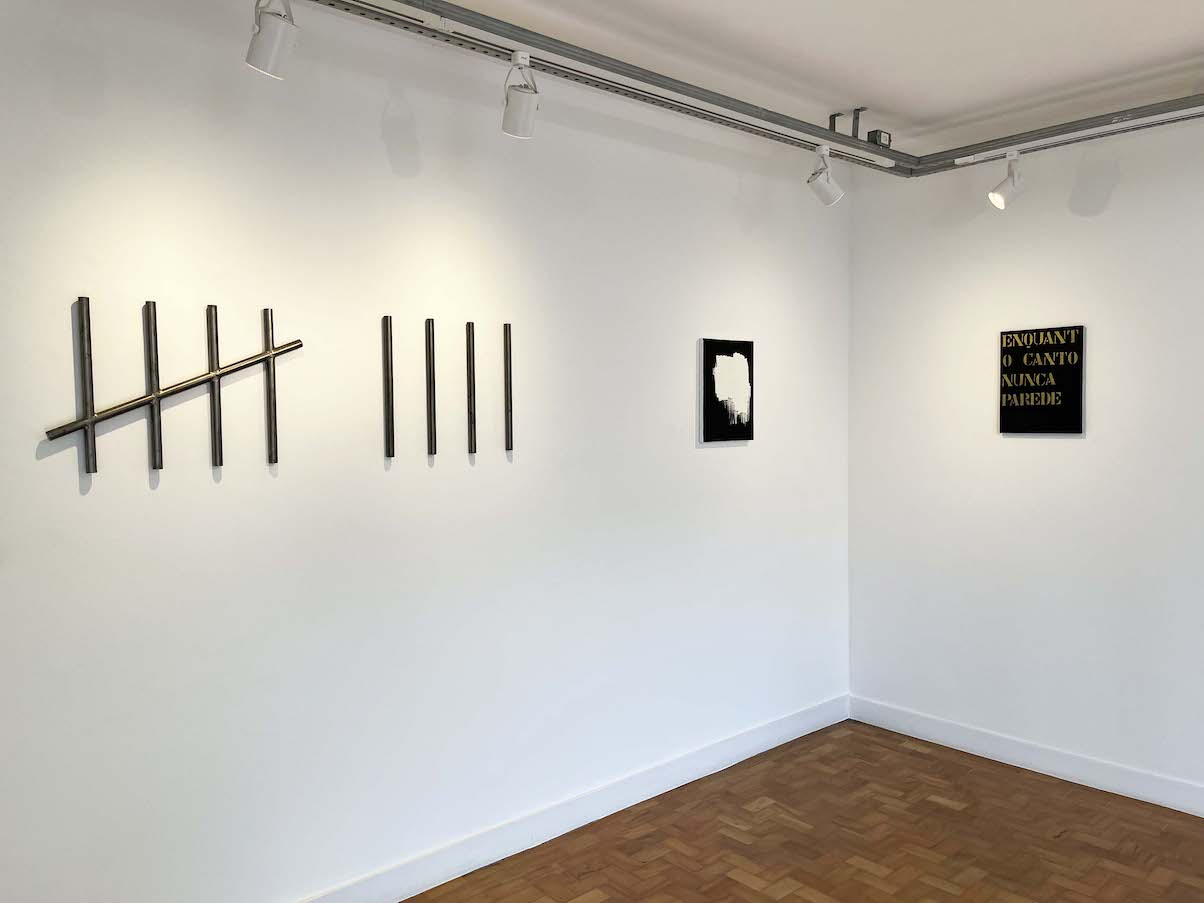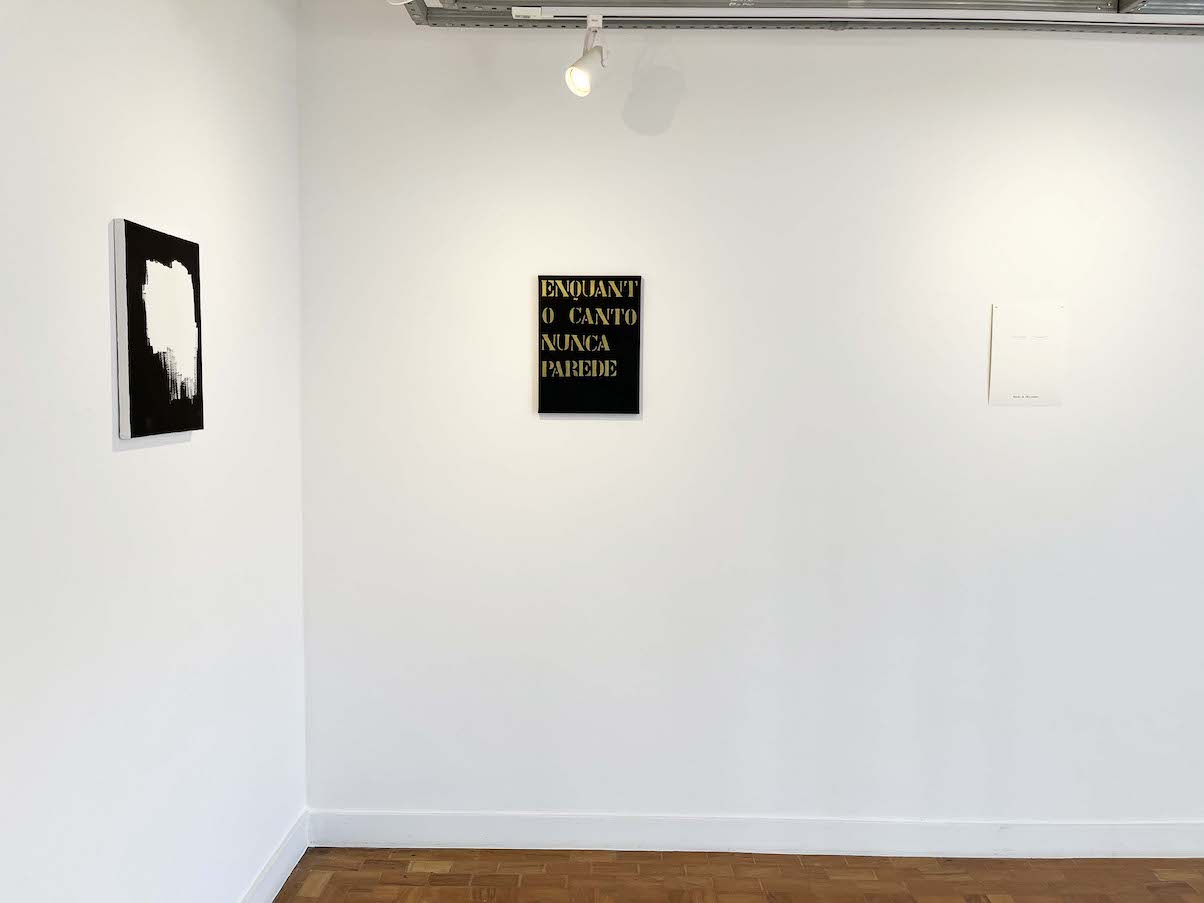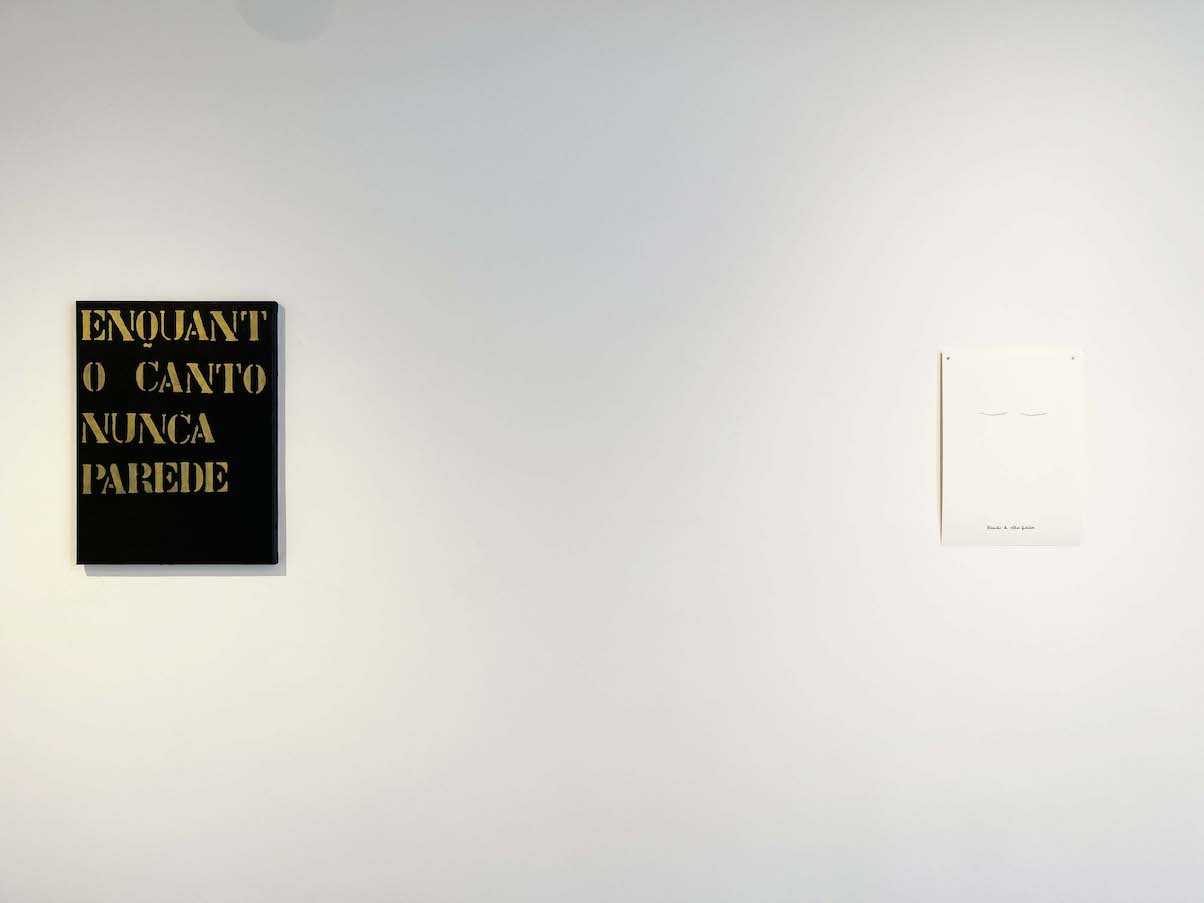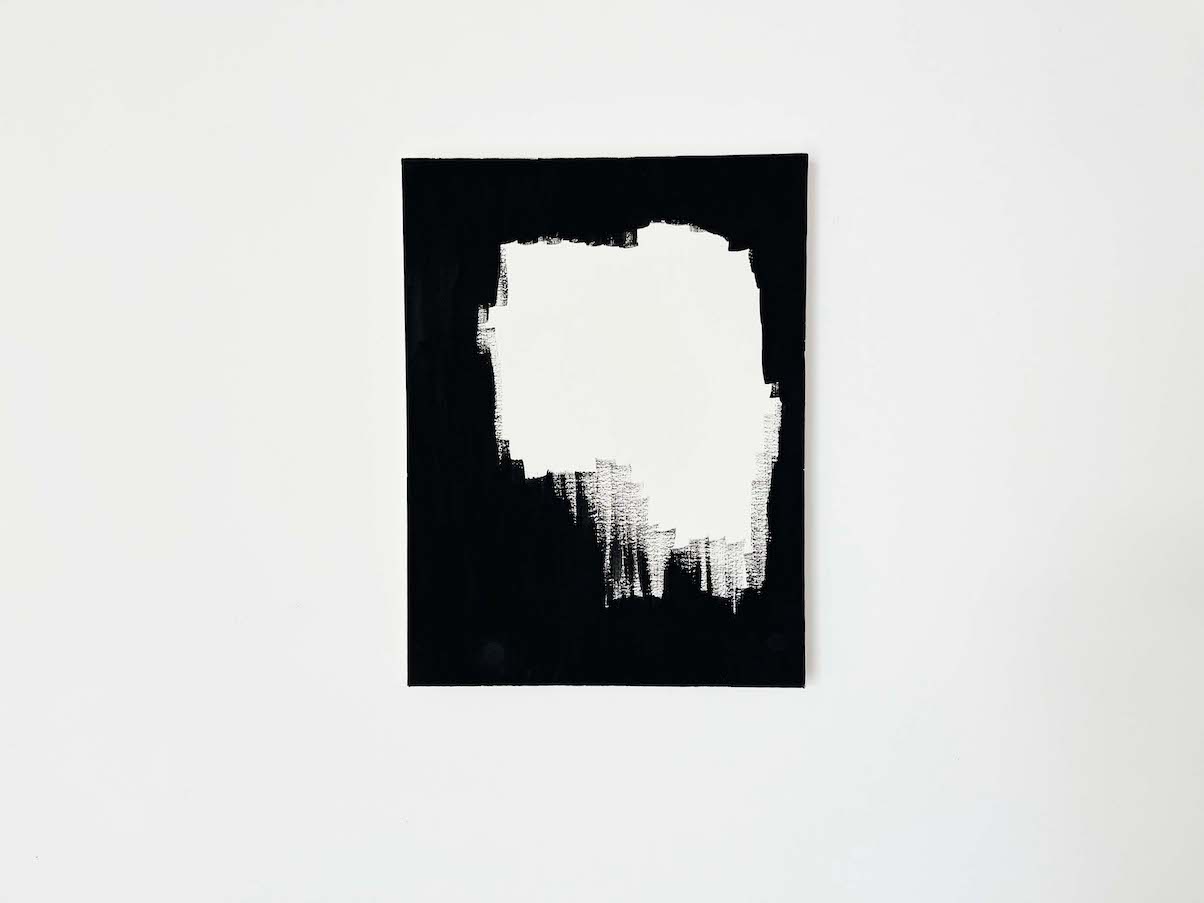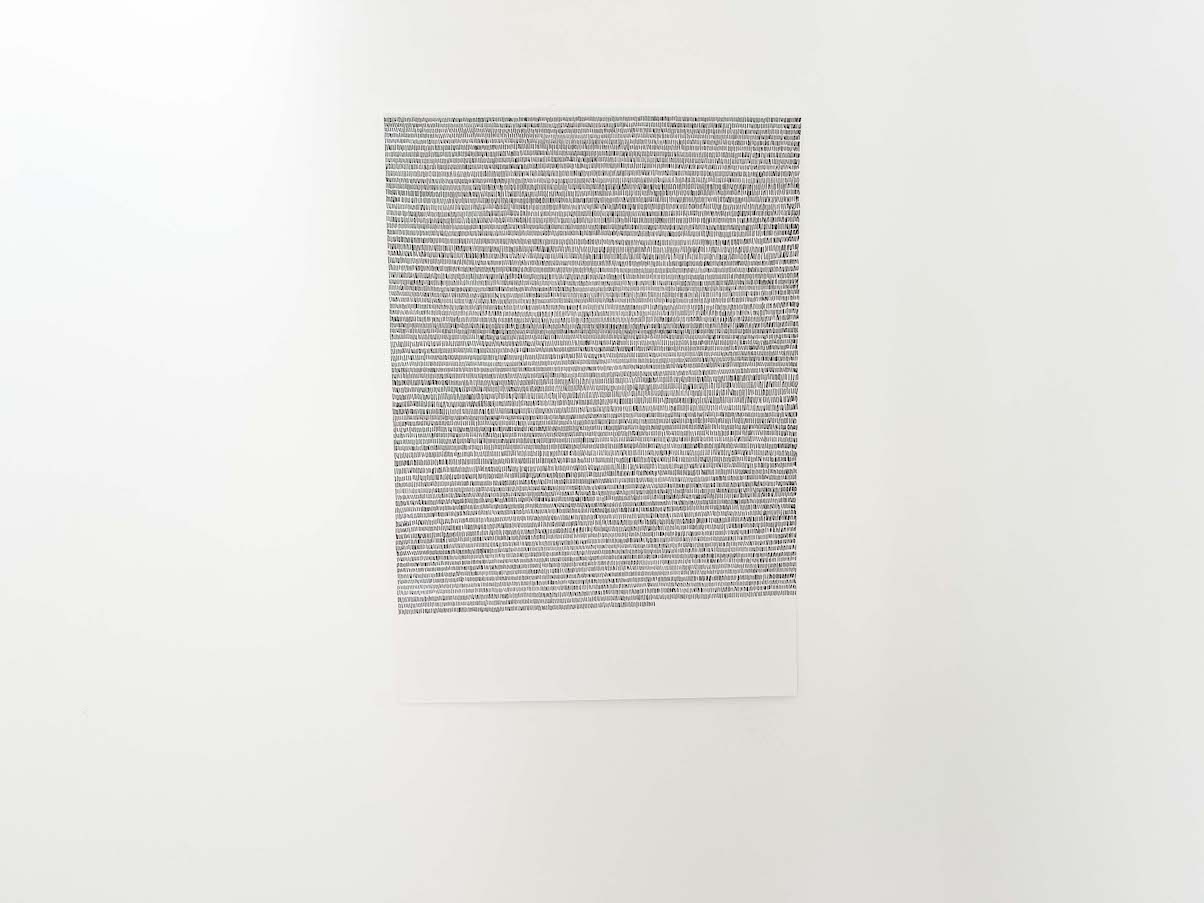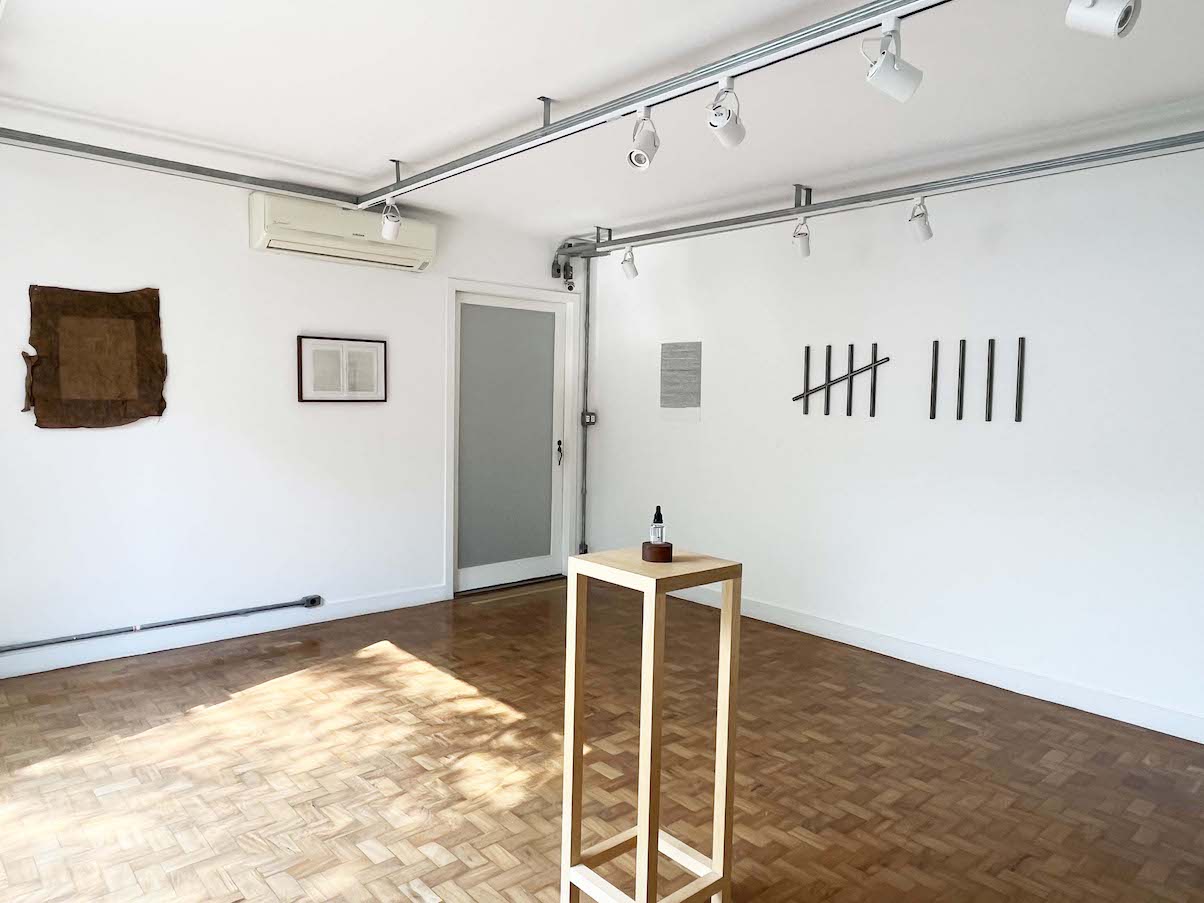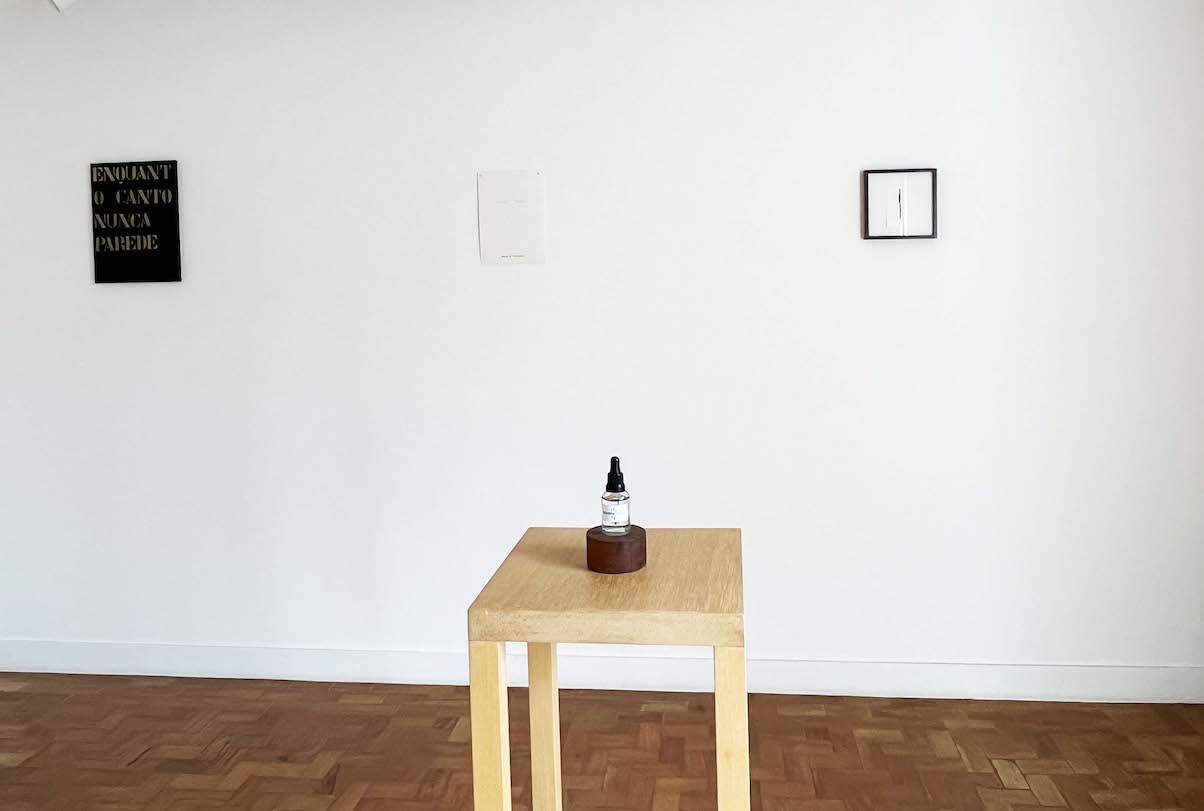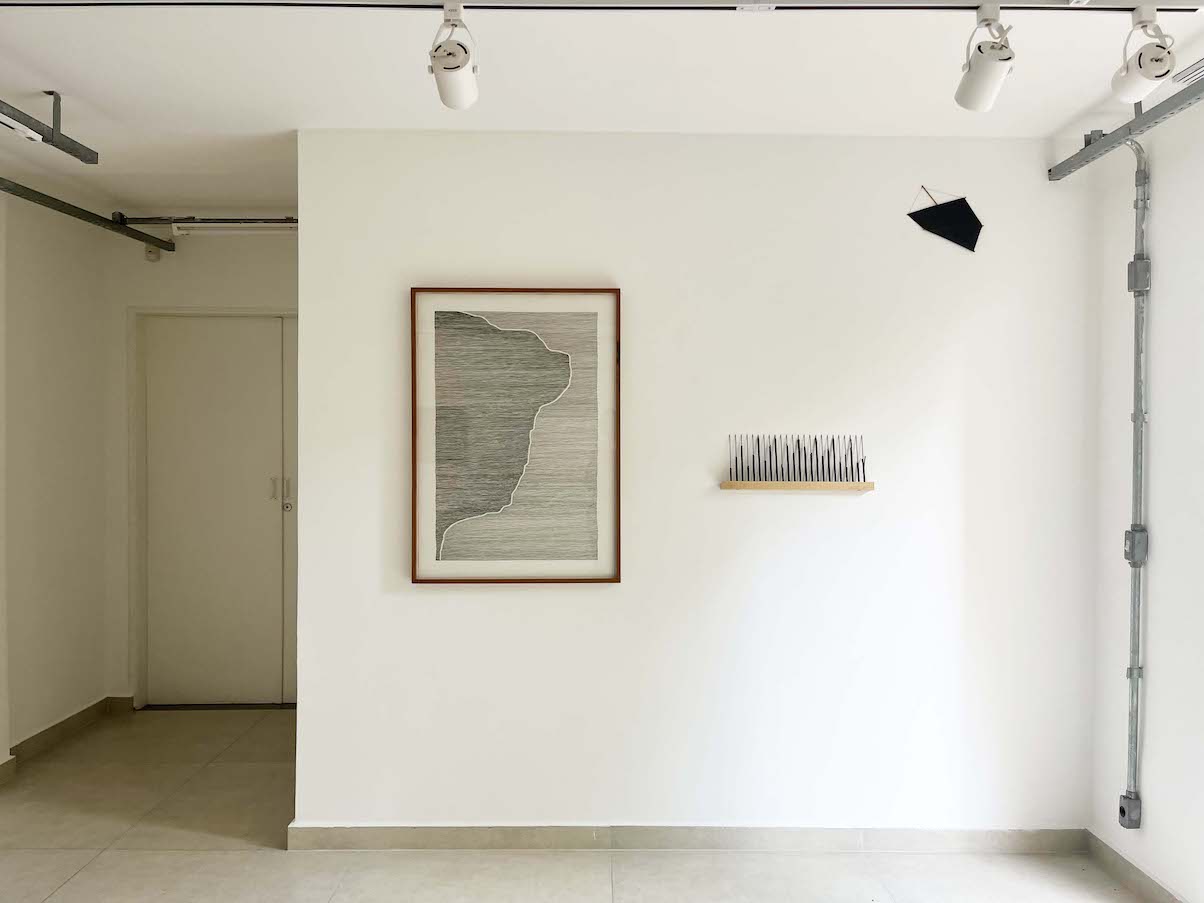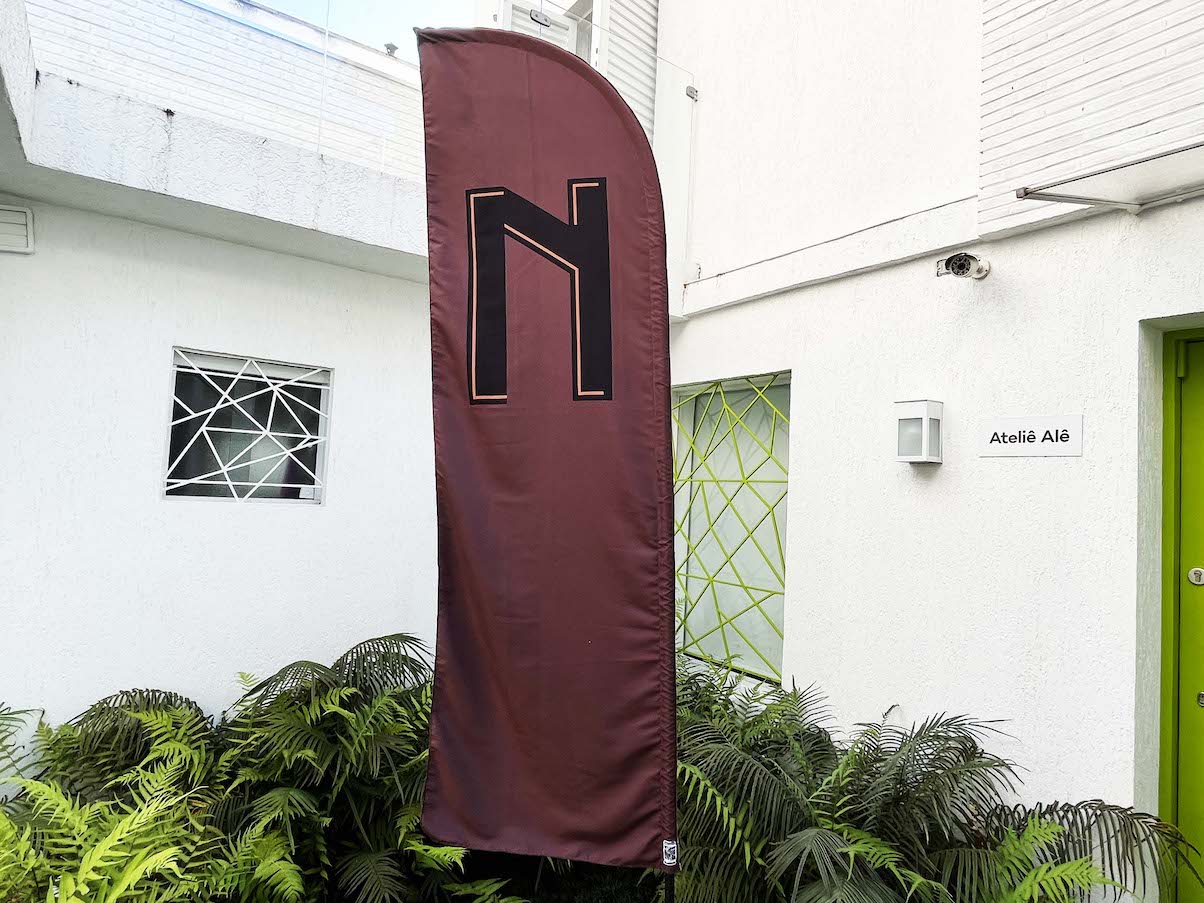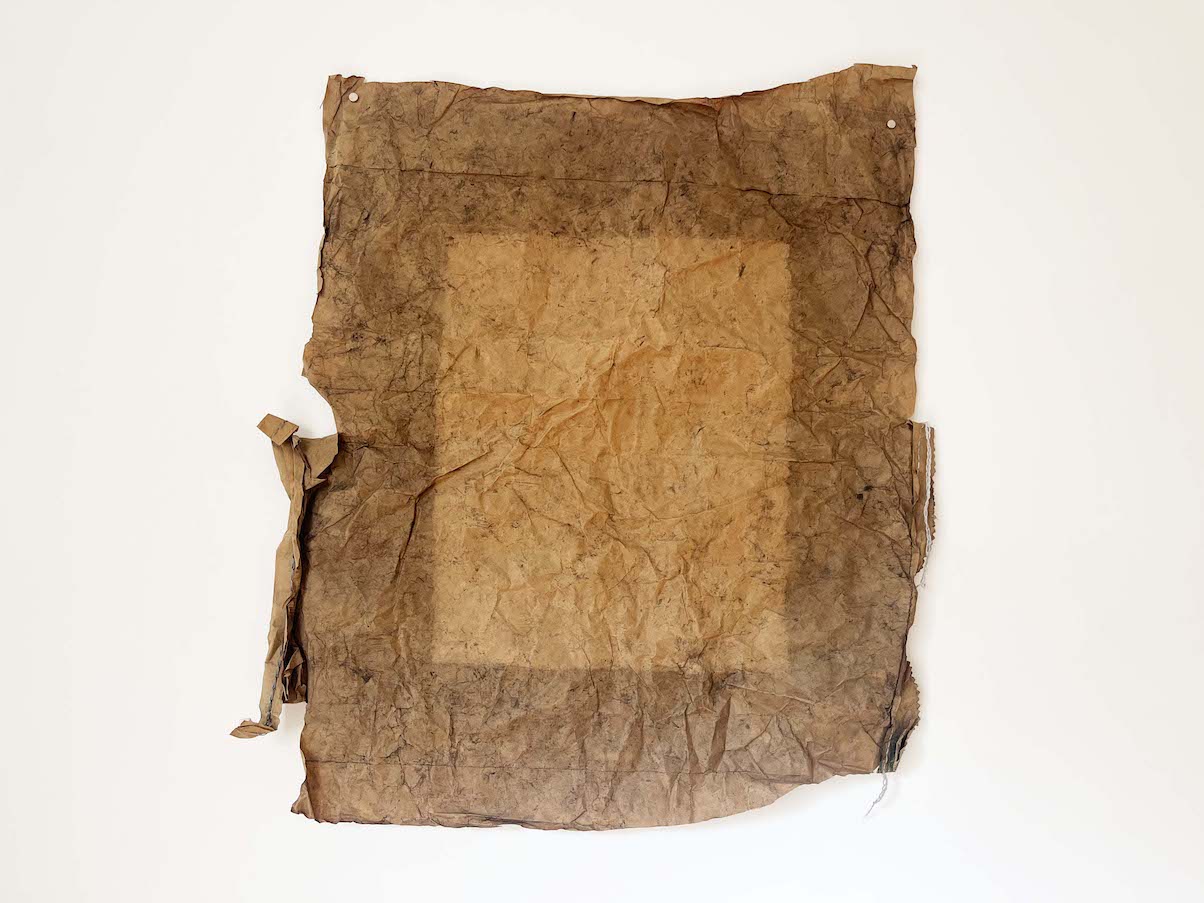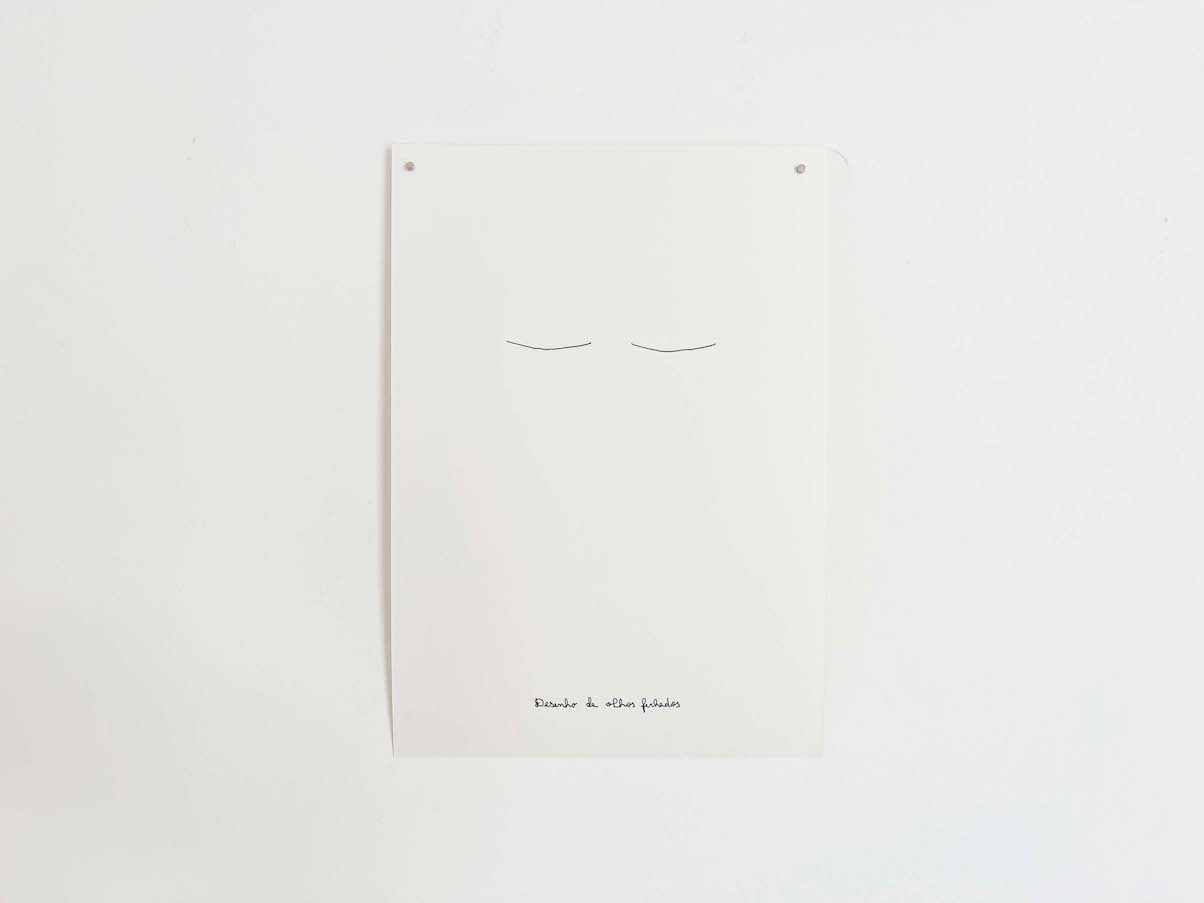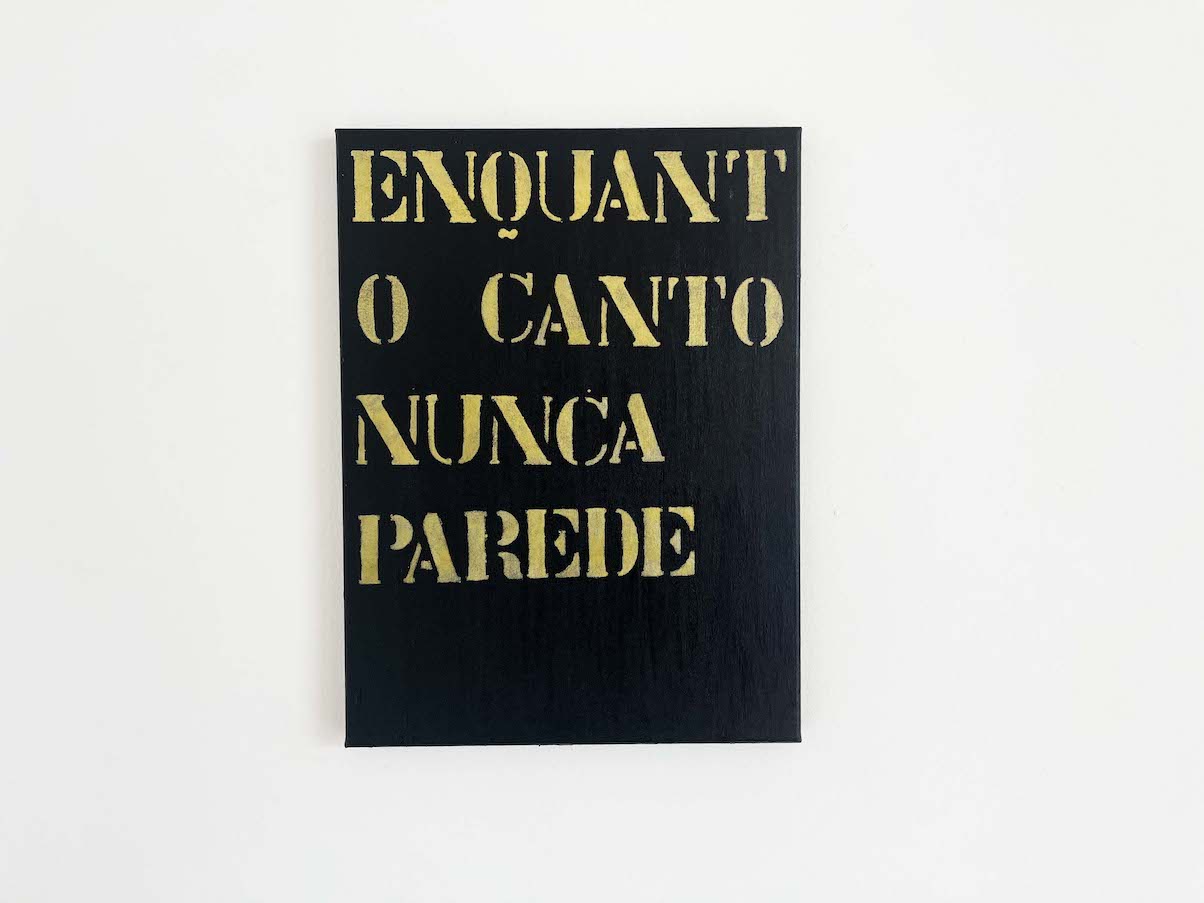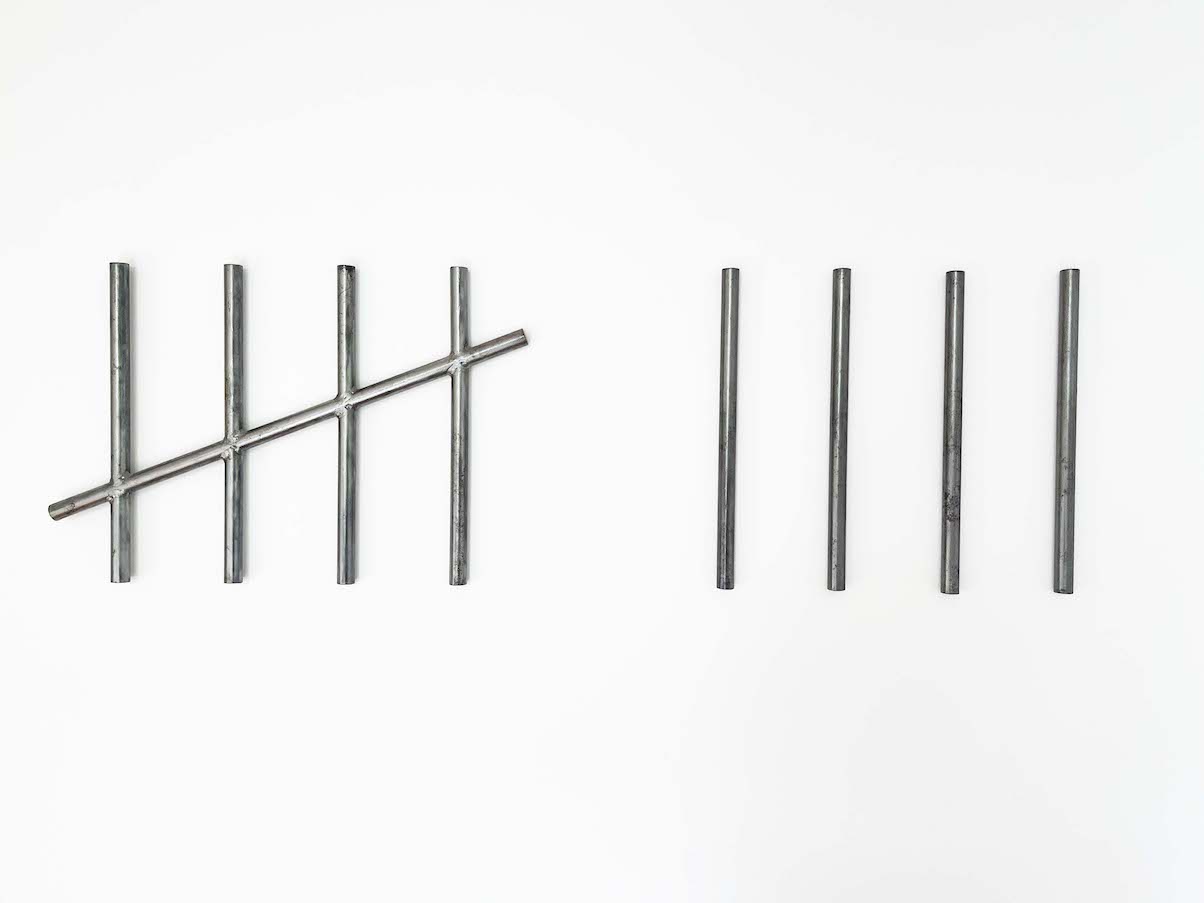


Enquanto canto, nunca parede
[While corner, never wall]
Tchelo
Text by Isabel Villalba and Alexandra Ungern
Opening: 03/18
Exhibition period: 03/21 to 04/20/2023
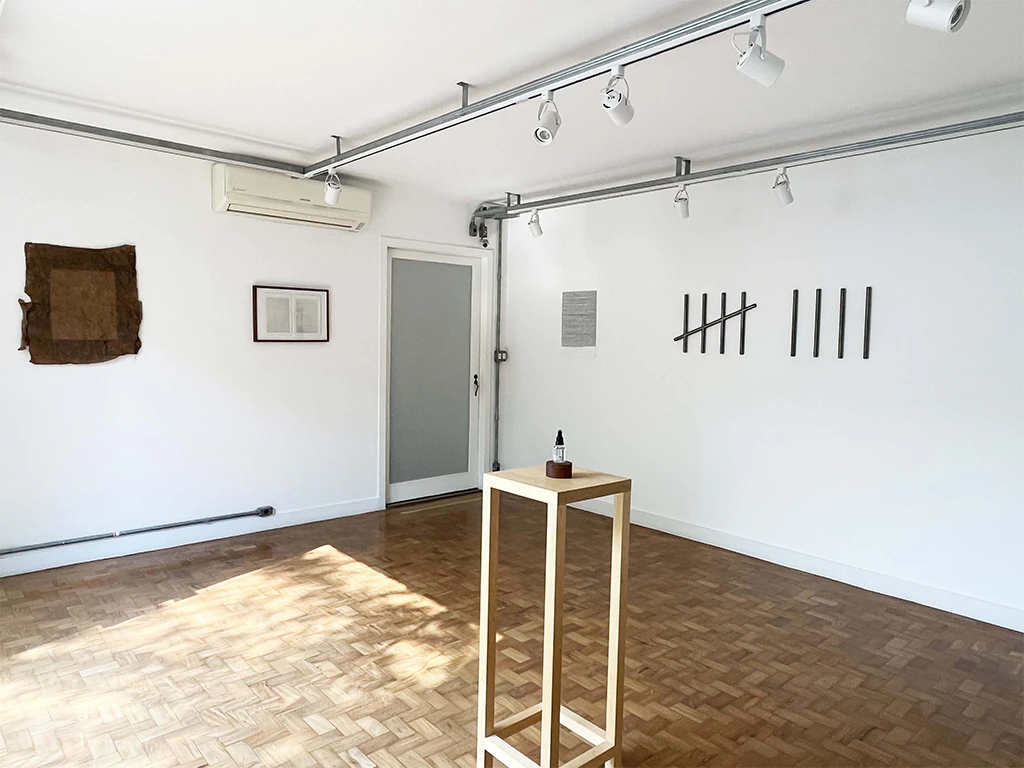
“You know better than anyone wise Kublai,
that a city should never be confused with the discourse that describes it.
However, there is a connection between them.”
Italo Calvino
We are happy to present the artist Tchelo’s individual exhibition in the rooms of Ateliê Alê. Since the creation of this space, the artist has been our partner and collaborator so that this arts center continues to successfully serve artists, curators and the interested public that frequents it. The exhibition will also feature the special participation of guest artist Luiz 83, who will also present new works.
In Tchelo’s poetics there is an amusing play on words that confuses us, involving a certain type of guesswork. The word “canto” can be the conjugation of the verb to sing, but it can also be a joint, edge, corner or angle. Someone can be put in a corner, like “on the side”, away, excluded. Or even a secluded and withdrawn place: “I want to be quiet in my corner”. “She looked at me out of the corner of her eye” – sideways, suspiciously.
Enquanto canto, nunca parede [While singing, never wall] plays with the playful sense of the phrase-work and encourages the association in the language. The corner, which is not a wall, sings of the freedom to work, invent, move procedures and materials to speak about yourself and the reality of the world around you. The drawing line, charcoal and graphite cross the works, Tchelo is an inventor of procedures, arrangements, deconstruction of things and ideas.
In any case, we enter the artist’s visual poetics where what stands out in his works is the ambiguous meaning of the phrases, the linear drawings, the shapes that remind us of something familiar. Translated with simple materials and, thereby seeking objectivity, he himself suggests going beyond the barrier of this apparent transparency, suggesting an unexpected interpretation that we can associate with this play on words of Enquanto canto, nunca parede [While singing, never wall] .
Returning to Calvino’s text, and translating it into the context of this exposition, the work must never be confused with the discourse that describes it, as it is not limited to words. The word cannot embrace the extensive meanings of the work, however, even so, the word loses its value as it operates a mediation in its meaning and understanding. There is a link between them, the work is mediated by language.
For this reason, we believe that Tchelo’s show is an invitation to let yourself be carried away by your imagination. Because it takes the viewer into a trap, a trap for the eyes and thoughts, where drawings and shapes play with our minds and lead us to listen to songs with different sounds. Sometimes an uncomfortable noise, sometimes a song so soft that it is impossible to distinguish. Barely audible, it borders on silence. This is the game.
Isabel Villalba and Alexandra Ungern
